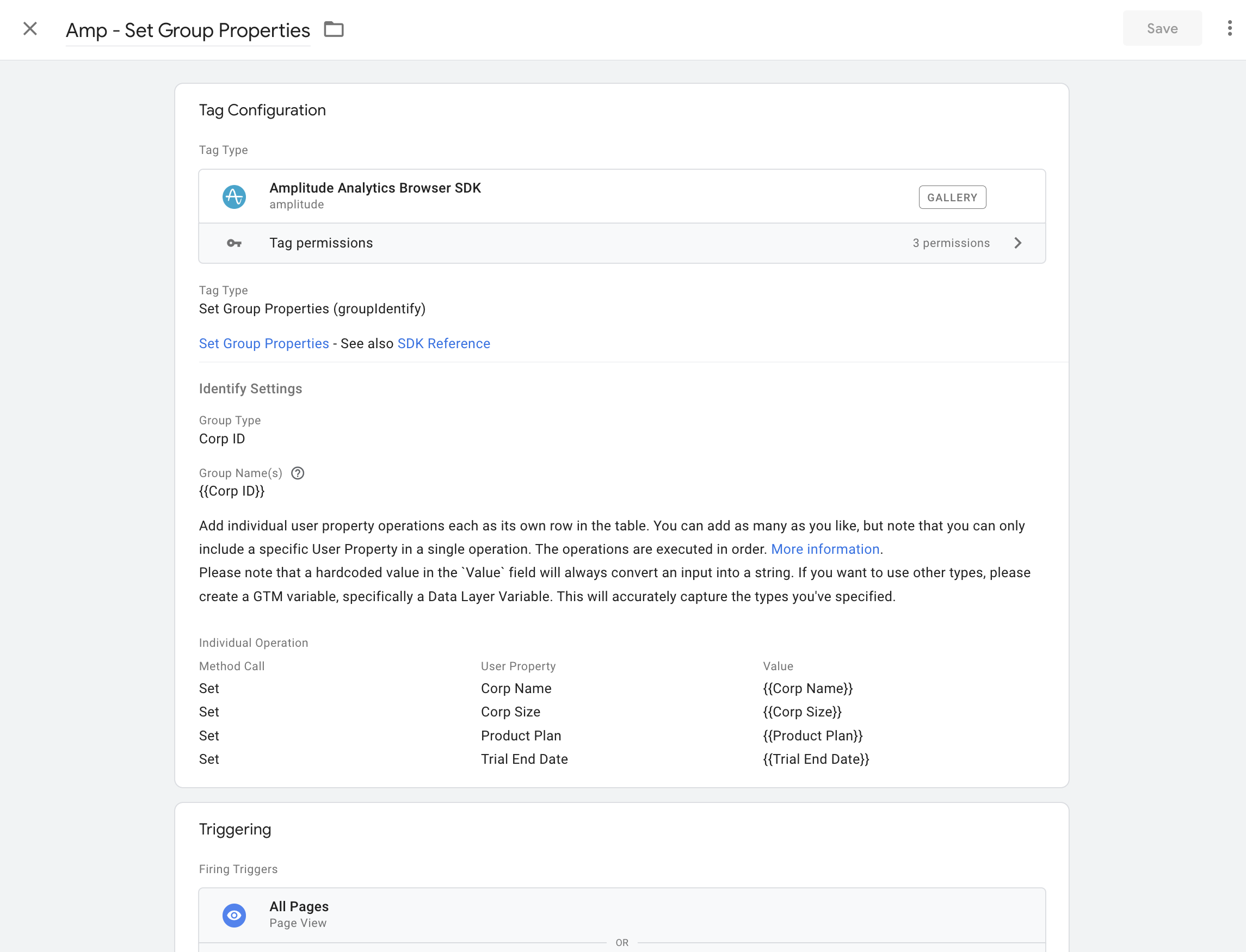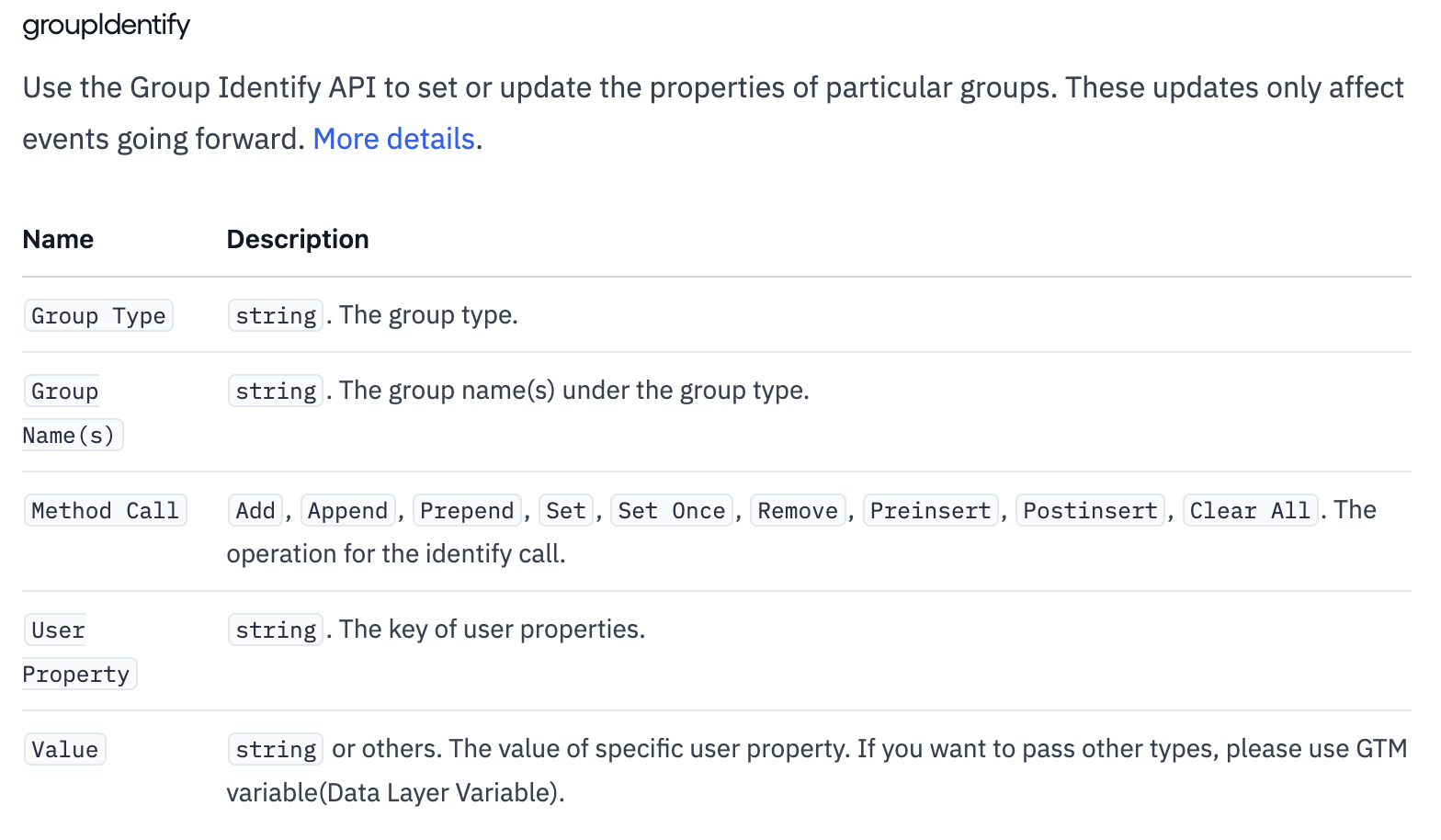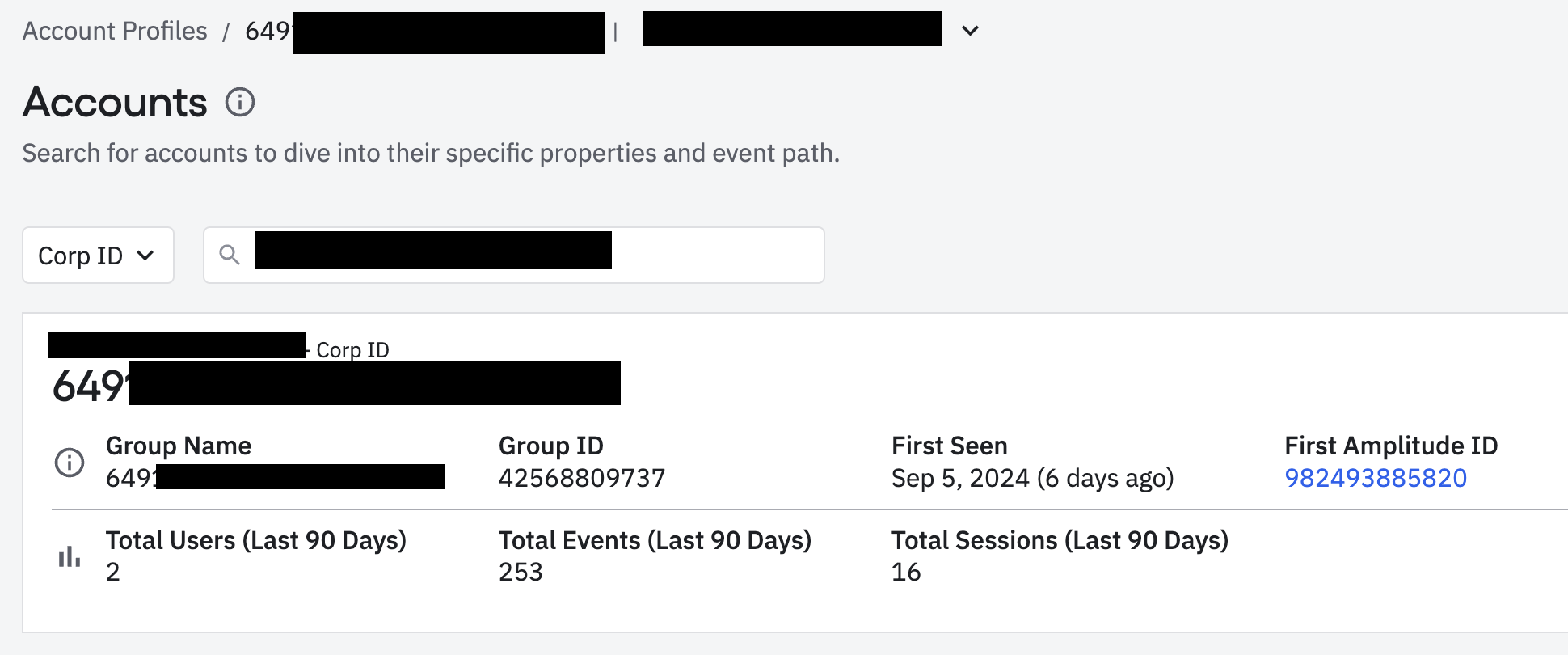Hi everyone
I use GTM as the tool to setup the init and identification tags
I’ve successfully identified the group “Corp ID” but unable to track group properties even if I set through this tag:

I asked the AI bot in the help center and it said “Currently, the Amplitude GTM (Google Tag Manager) template does not support the group identify call which is used to set group properties. ”
But in the GTM’s doc it clearly includes the “Set” call

I noticed that in the Set Group Properties tag, the label for setting is “User” property. Does this mean it actually not support setting up a “Group” property?
I hope someone can tell me how do I set up and see the group properties:
